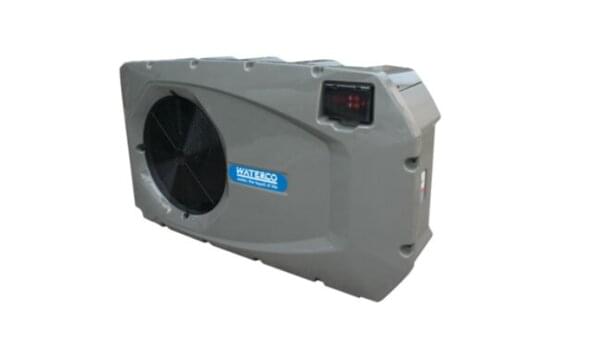
When it comes to enjoying a refreshing swim in your pool, the temperature of the water plays an important role. During the colder months, swimming can become less inviting as the water turns uncomfortably chilly.
But what if you're someone who craves that refreshing swim regardless of the temperature? You might brave the cold, but it often comes with discomforts that can discourage you from taking the plunge. This is where pool heat pumps come into play.
All swimming pools require regular upkeep to remain clean and safe for use throughout the year. However, there are times when the weather inhibits the usability of your pool. But with a pool heat pump, you can extend your swim time and make the most of your investment.
What Are Pool Heat Pumps?
Pool heat pumps are appliances that can be integrated into your swimming pool's circulation system. These devices employ a fascinating mechanism to achieve the desired water temperature.
They come in various shapes, often resembling columns, and feature programmable options with fan-like blades on top.
In fact, pool pumps, alongside gas pool heaters and solar pool heaters, are efficient methods for heating your pool.
However, it's important to note that these heating methods differ significantly. Solar and heat pump heaters, in particular, stand out as the most efficient choices available on the market.
How Does a Pool Heat Pump Work?
Now, let's explore the inner workings of a pool pump. These devices utilise electricity to draw in warm air from their surroundings and then transfer that extracted heat into your pool. It might sound like a simple process, but there are several steps involved:
Step 1: The heat pump takes in water from your swimming pool. It's important to note that, during this process, Freon (a refrigerant) does not come into direct contact with the pool water.
Step 2: The pool pump compresses its Freon repeatedly until it reaches a scorching temperature of 93 degrees Celsius.
Step 3: The heated Freon moves into a low-pressure region within the heat pump, where it rapidly transforms into hot gases. Simultaneously, the heat pump's fan draws in warm air from the environment. If the incoming air is warmer, the evaporator coils will absorb more Freon in the next step.
Step 4: The Freon gas flows through the evaporator coils, cooling the gas down. During this cooling process, the gas transfers its heat to the water from step 1, effectively heating it. The now-heated Freon returns to the pool in a continuous cycle.
As this cycle repeats, your pool gradually reaches the desired temperature. Importantly, the Freon gas never comes into direct contact with your pool water, thanks to the evaporation coils.
Are Pool Heat Pumps Worth Buying?
Now that you understand how pool pumps function, you might be wondering if they're worth the investment. The answer is a resounding "yes," and here's why:
1. Enjoy a Longer Swimming Time
Using a pool pump in a tropical country like Malaysia allows users to enjoy longer swimming times because it efficiently heats the pool water to a comfortable temperature. In tropical climates, pools can still have cooler water, especially during the evenings or cooler months.
The heat pump warms the water, making swimming more comfortable and extending the swimming season, even during cooler times of the day or year, ensuring users can make the most of their pool year-round.
2. Protect Your Pool
Algae tends to thrive in warmer temperatures, even during the off-season. However, with a pool heat pump, you can maintain your pool's water temperature just a few degrees cooler before closing it, preventing algae growth.
3. Save Money
While pool pumps are initially an investment, they can save you money in the long run. These pumps use minimal electricity to extract heat from the ambient air, providing an efficient and cost-effective way to heat your pool. In comparison, traditional gas heaters often require expensive natural or propane gas, resulting in higher operational costs.
Final Takeaways
All in all, pool heat pumps are an excellent choice for any pool owner. Not only do they provide the comfort of warm water, but they also offer extended swim time, protection against algae, and cost savings over time.
Waterco Malaysia produces and supplies swimming pool and spa equipment, water treatment solutions, aquaculture products, as well as water pumps for pools, and commercial sanitizing solutions.
For more enquiries about pool pumps and other related swimming pool accessories, feel free to get in touch with our pool specialists.